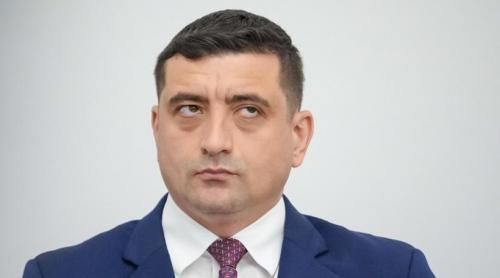
ECONOMICS - September 16th 2004
The foreign investors decided: we have market economy, even though there are the "sharks" that do not follow the rules. The Romanian governors are optimistic, and the European officials are cautious. They say we will have their answer in three weeks time, in the country report.
ADRIAN MIHAI
The Council of the Foreign Investors (CFI) believes that Romania has a functional market economy, and the European Commission should not refuse assigning this statute "only because there are 500 sharks" that do not follow the rules of the game, stated the CFI president, Gilbert Wood. "In the Romanian economy there are 500 sharks that swim according to some other rules, which master the national and international press and give birth to a negative image of Romania. Punishing all the 22 million Romanians because of these 500 would a mistake from the Bruxelles authorities", stated Wood, during the "Does Romania have a functional market economy?" seminary organized by the Ministry of European Integration.
PROGRESSES. According to the CFI president, Romania progressed in all the 14 areas recommended by the European Commission in the country report in 2002. Some of these areas are the decrease of the inflation, of the arrears between the companies, the gathering of the electrical current bills, the reform of the fiscal administration and of the budgetary procedures, the development of the financial intermediation, the restructuring of the state enterprises, privatization procedures that include the banking system, and the decrease of the state contributions. "For now, it is clear that there is a progress recorded and the evolution has been a very good one. The only area that still has problems is the one of the economical arrears", also said Wood. He also emphasized the evolutions in the juridical system reform and the magistratesâ independence, as well as in the restructuring and privatization of the state companies. He said that last year the private sector has contributed with a 70% rate to the GDPâs formation, and this rate would significantly increase after finalizing the privatization in the energetic area. In addition, 59% of the banking assets belong to some private capital banks, and the fiscal legislation has become stable after implementing the Fiscal Code. Moreover, the new regulations in the competition area eliminate the possibility of the state contributions being given without the approval of the Competition Council.
PROBLEMS. The economical criterion for the EU adherence contains the functional market economy statute and the ability of easily facing the competitionâs pressure in the unique market and, until now, there has never been a country to receive both these statutes during the same year, stated Onno Simons, the deputy of the European Commissionâs Delegation chief. He emphasized that, though there are progresses in the economical area, Romania still has the highest inflation rate of all the candidate countries, and this has consequences upon the countries ability of fulfilling the obligations that come once the European legislation is adopted. The EU official mentioned that the Romanian authorities need to take into account a middle term sustainability for the public finances, giving as an example the postponing of the pensions system reform that led to the increase of the pressure upon the state budget. Another important criterion is the free competition on the market, the liberalization of the prices being an indicator for this. The present level of the price liberalization seems satisfying, but stateâs administrative interventions upon setting some of the prices should be avoided in all the cases where the monopole does not exist, explained Onno Simons.
OPTIMISM. Romaniaâs deputy chief-negotiator with EU, Leonard Orban, seemed optimistic in what concerns the country report of the European Commission in October and the ending of the EU adherence negotiations by the end of this year. He was also optimistic in the fulfilling of the economical criterion by Romania matter and in the functional market economy statute one. For now Romania has closed 25 negotiation chapters of the 31 existent and, by the end of September, hopes to close two more - "The Free Circulation of Services" and "The Regional Politics" - and to significantly go forward to the "Environmental Protection" chapter, showed Orban.
Translation: SORIN BALAN
Citește pe Antena3.ro

















